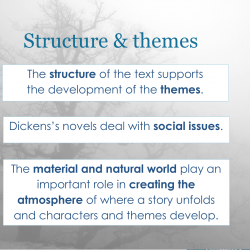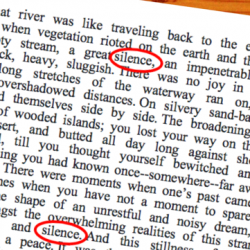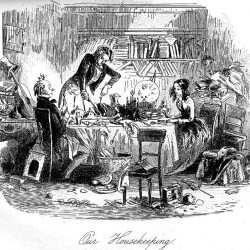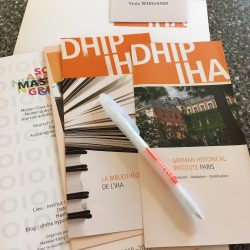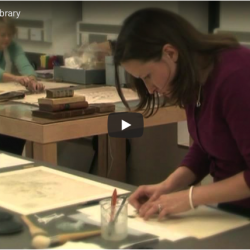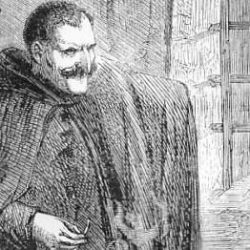To mark the launch of the African American Writers Corpus 1892-1912 (AAW; beta release), this guest post by Dr Jimmy Packham introduces one of the key authors of the AAW corpus, Charles W. Chesnutt. Jimmy is a Lecturer in North American Literature at the University of Birmingham and is a specialist in gothic fiction, including … Continue reading “Dialect and the dead: Charles W. Chesnutt and the voices of the US South”
Conversations in the CLiC corpora: Exploring their potential as models for dialogue in ELT
In this post, Chris Jones (University of Liverpool) shows how the CLiC quotes subsets can be explored to aid English language teaching. He provides a sample activity from his recent open access article in the Journal of Second Language Teaching & Research, co-authored with David Oakey. Nineteenth century fiction may seem an unlikely place to … Continue reading “Conversations in the CLiC corpora: Exploring their potential as models for dialogue in ELT”
The Decline and Fall of Cutlery and the Domestic Man
In this guest post, Katherine Jackson (Royal Holloway) demonstrates how searching for items of cutlery in the CLiC corpora can shed a light on the cultural context of 19th century Britain and the gender conventions of the time. If you enjoy this post, also make sure to check out her recent Technecast podcast on her … Continue reading “The Decline and Fall of Cutlery and the Domestic Man”
Finding links between the structure and themes of A Christmas Carol
A Christmas Carol is a popular text choice for students in GCSE English Literature Section B (see the AQA Lead Examiner’s Report 2017). No wonder then, that it is also one of the top texts in our CLiC 2.0 web app for which teachers request activities. In fact, two teachers have previously written guest blog … Continue reading “Finding links between the structure and themes of A Christmas Carol”
“Hello darkness my old friend…”. Enacting silence through punctuation in Heart of Darkness
As suggested by the famous song by Simon and Garfunkel, darkness and silence often go together in our imagination. Conrad’s novel Heart of Darkness seems to be no exception. The to-and-fro movement from linguistic description to literary appreciation and interpretation is what traditional stylistics and modern computer stylistics have in common, along with the assumption … Continue reading ““Hello darkness my old friend…”. Enacting silence through punctuation in Heart of Darkness”
Liminality in David Copperfield
In this guest post, Sophie Phelps explores ‘liminal’ Dickensian characters who are not quite children and not quite adults, as she shows with a case study of David Copperfield’s “child-wife” Dora. We think this topic is a fantastic fit for us: questions of characterisation in Dickens’s writing are very dear to the CLiC project. Childhood is … Continue reading “Liminality in David Copperfield”
Inspiration for corpus linguistics and stylistics: #dhmasterclass
This post reflects on the Digital Humanities Masterclass 2018 (#DHMasterclass) in which I participated at the German Historical Institute in Paris. [There’s an institute like this in London as well, by the way!] The masterclass was meant to bring together researchers working with digital tools and historical materials (particularly with autobiographical sources) from France and Germany … Continue reading “Inspiration for corpus linguistics and stylistics: #dhmasterclass”
CLiC and the Cadbury Research Library: The start of a collaboration
This week marked the beginning of our collaboration with the University of Birmingham’s Cadbury Research Library. Together with the GLARE Project we were pleased to give a seminar for library staff, introducing the CLiC web app and the opportunities it can offer to students, staff and visitors. This week staff @CadburyRL enjoyed a fascinating training session … Continue reading “CLiC and the Cadbury Research Library: The start of a collaboration”
Finding the biting point: Desire and biting males in Dickens’s ‘The Pickwick Papers’ and ‘The Old Curiosity Shop’
In this guest post, Colette Ramuz (Royal Holloway) explores textual patterns related to the mouth in a subsection of the CLiC corpus of Dickens’s Novels. She argues that the use of digital tools can help advance our understanding of Dickens’s representations of embodiment and sexuality. It is a commonplace that sexuality was considered a taboo topic … Continue reading “Finding the biting point: Desire and biting males in Dickens’s ‘The Pickwick Papers’ and ‘The Old Curiosity Shop’”
Distance-reading the feminine landscapes of The Awakening
In this guest post, Heather Froehlich, Digital Scholarship Fellow in Text Analysis and Assistant Librarian at Pennsylvania State University, shows that digital humanities is not all about big data but can also provide useful insights on a smaller scale. She demonstrates this with a case study of Kate Chopin’s novella The Awakening. One thing we digital … Continue reading “Distance-reading the feminine landscapes of The Awakening”





